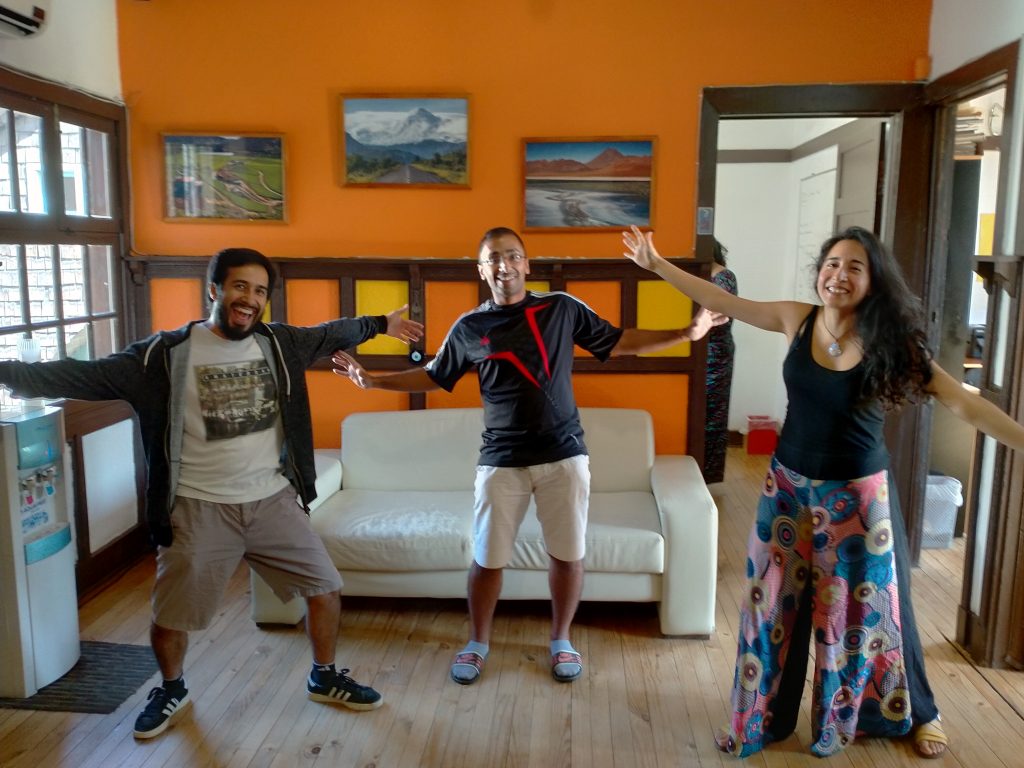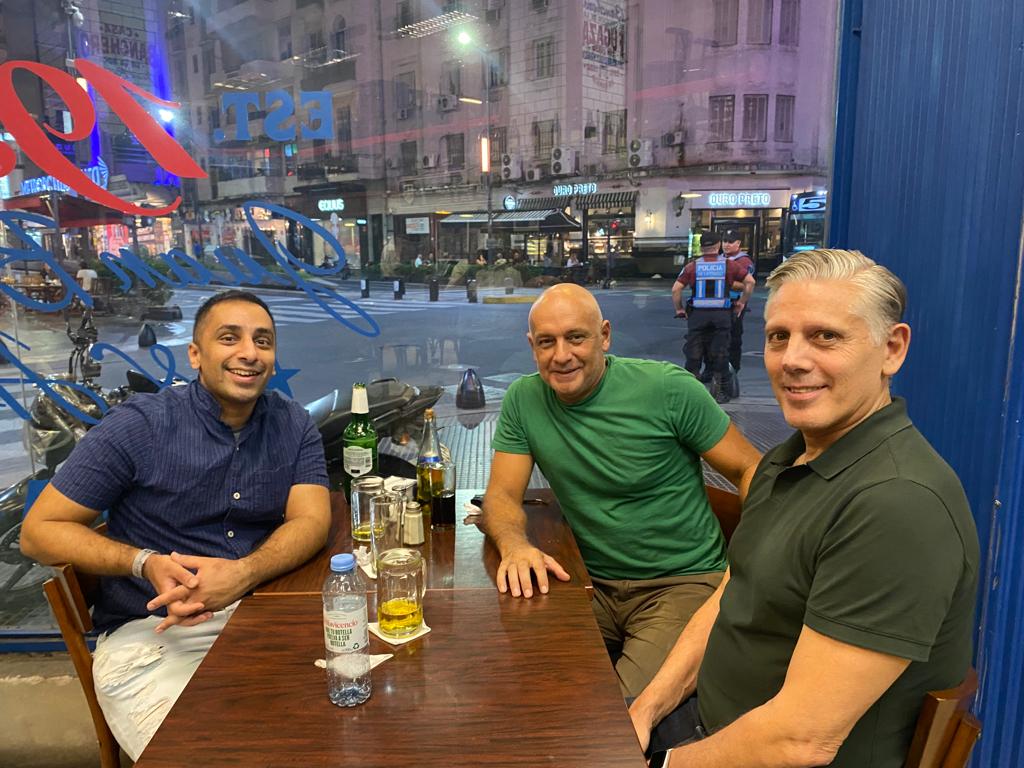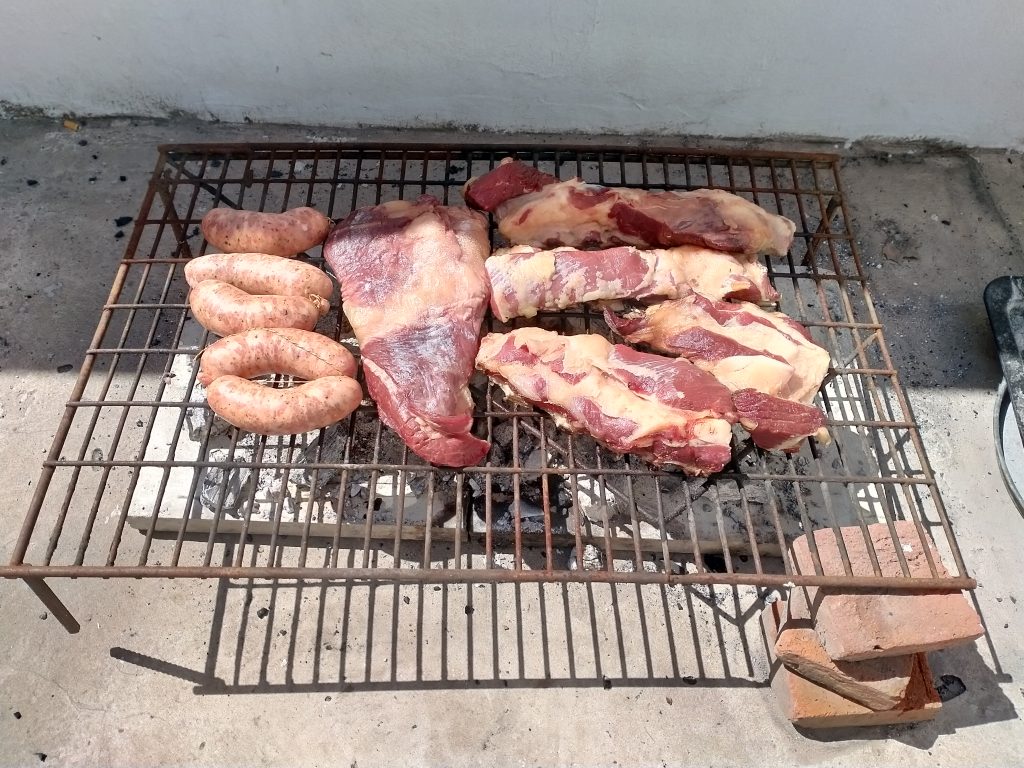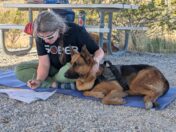“When I travel, I act as translator for English-speaking tourists” #BaseLangStories
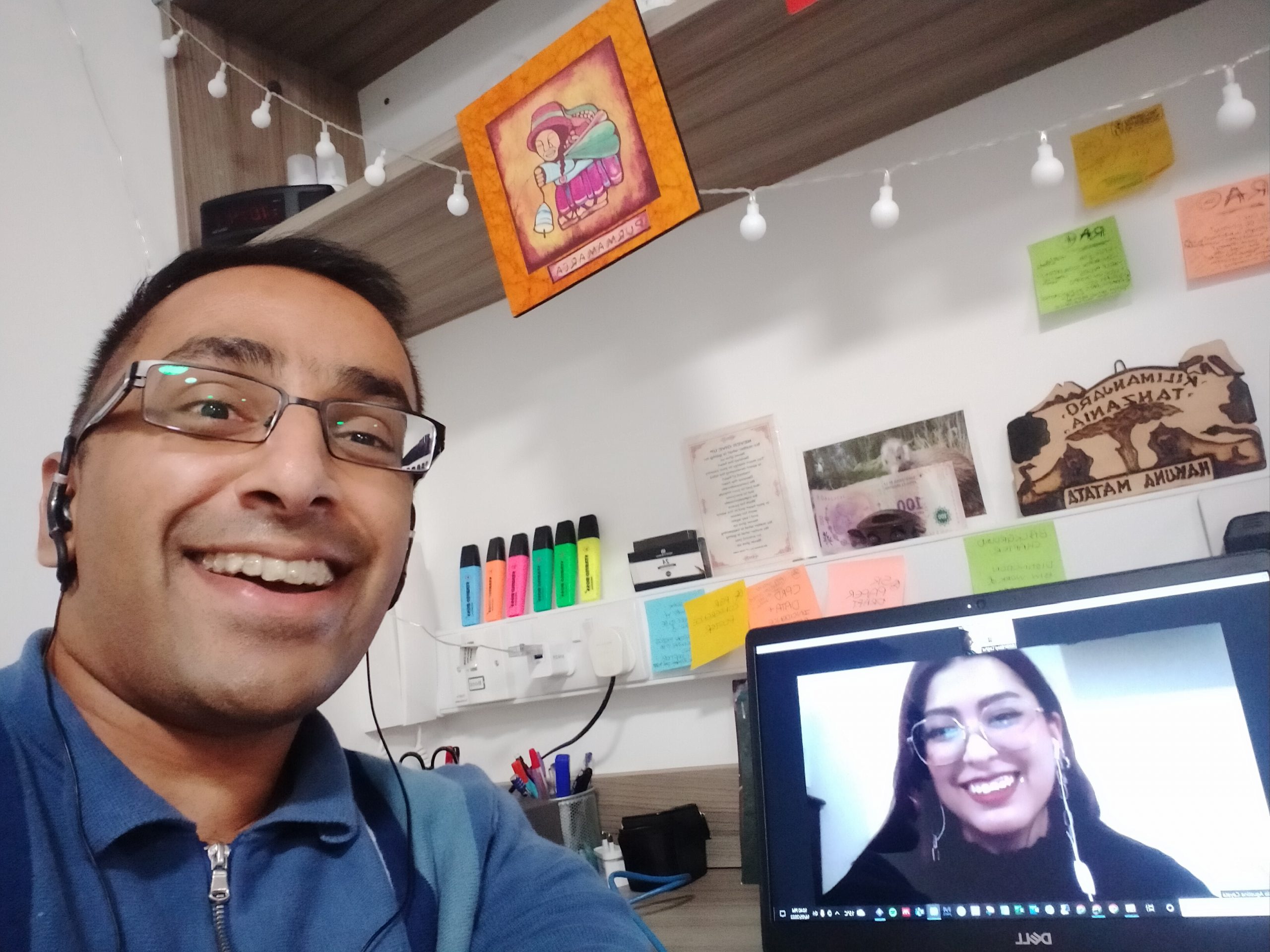
Get our free email course, Shortcut to Conversational.
Have conversations faster, understand people when they speak fast, and other tested tips to learn faster.
More infoA quick immersion program in Chile was Amardeep’s first real introduction to learning Spanish, just before covid. Under lockdown in England he maintained his progress with daily classes on BaseLang, where he now enjoys having long discussions entirely in Spanish.
BaseLangStories series puts the spotlight on BaseLang students – asking them about their motivations for learning a foreign language, what impact learning Spanish has had on their lives, advice they have for fellow students, and more.
1. What’s your name and where are you from?
Hello! My name is Amardeep and I’m from England.
2. Why did you want to learn Spanish?
Learning Spanish had appealed to me since around 2015, but for one reason or another I kept putting it off. I thought it could be a cool hobby to pursue, but never had enough interest nor time to make the first step in getting started with learning.
That all changed in 2020 when I was travelling… I planned to spend around three to four months backpacking around South America, having spent the previous 1.5 years in Asia, and knew from other travellers that having some level of Spanish would be essential (unlike in Asia where you could get by with English quite easily).
So my reason to learn was suddenly there (it was basically survival for travelling!).
3. In the past, what did you use to learn Spanish?
I began my Spanish learning journey in March 2020 with a couple of weeks of an intensive beginners course (I was starting literally from the very beginning with 0 Spanish knowledge), in Chile (yes Chile! I later realised this is one of the most difficult countries to learn Spanish in, due to the complexity of the slang that the locals use ;)!).
I remember my first day well… the receptionist of the school casually asked me “¿Cuál es tu nombre?”, I remember feeling super confused because I thought ‘nombre’ meant ‘number’, and was trying desperately to find any reference number for my course booking in my emails!
Those two weeks were definitely a very steep learning curve (I remember returning to my hostel each afternoon, completely exhausted, with a fried brain!). But those two weeks were also super rewarding, and being able to interact with the locals (a very small amount), kept me motivated and helped a lot.
Unfortunately I couldn’t carry on travelling past the Spanish course as planned (Covid suddenly hit South America and found me back home). Suddenly being at home and in quarantine, I realised I didn’t want to lose the Spanish I’d built up, and wanted to have something positive to focus on whilst being stuck at home.
So I initially carried on with one of my Chilean teachers through online classes, approximately three times a week, and in the meantime tried all kinds of apps, especially DuoLingo (I spent many hours mastering all the basics there!). It wasn’t until November 2020 that I eventually discovered BaseLang, and my learning suddenly began to really skyrocket!
4. Before BaseLang, which part of learning Spanish did you struggle with the most?
I think having the confidence to speak with natives is always challenging for foreigners, especially if you are not getting regular language practice in, and in a comfortable environment.
I did a one month trip to Spain in September 2020, and suddenly found myself immersed with locals… it was a very different vibe to the slow paced, infrequent classes I’d been having with my Chilean teacher (I couldn’t afford to have super regular classes), and the at-your-own pace world of apps.
I realised from this trip that there were a lot more holes in my Spanish game than I was initially aware of (the apps sometimes make you feel like you’re doing better than you actually are!), and came back home with strong motivation to up my game even further. I was a bit frustrated with how I was learning Spanish at the time, and felt I needed to try new approaches. A few Google searches later led me to BaseLang.
5. What obstacle would have prevented you from signing up for BaseLang before?
Mainly it was just not knowing about BaseLang. Had I known and started with it back in like March 2020, I think I’d be in an even better position right now! My initial thought was that it is slightly expensive too (especially for me as I’m still a student), but when you take into account the overall value that you get per month (unlimited classes!), there’s no question it’s a great investment. I decided, for example, to cut back a lot on my classes with my Chilean teacher, to leave me with money to pay for BaseLang, and I’m definitely seeing the return coming through!
6. What did you find as a result of signing up?
Upon signing up I was first a bit overwhelmed with all the material available (I was initially following the curriculum in Real World). But I quickly became comfortable with the platform and how everything worked etc. What surprised me the most was the wide variety and vast quantity of teachers available! And the amount of hours that were available for classes!
I remember at first I probably started off a bit too eagerly, and was loading up with like 4 to 5 hours worth of classes each day on my weekends, and maybe two hours of classes per day on weekdays. I just couldn’t get over how I could literally take as many classes as I wanted for the first time! I noticed that my interest in learning Spanish sky-rocketed through this process also (gracias a la real interaction with real humans, rather than automated apps etc), and I think that finding ways to keep yourself interested is the key to real success.
7. What specific feature did you like the most about the Real World program?
Definitely the relaxed and flexible nature of everything. The content of the classes is literally in your hands. So if you feel like more formal learning, that option is always there, and you know that the teachers on hand will support you and keep giving you as many examples as you want until you understand the concept.
But if you are more in the mood to just chat and take the classes more lightly, that’s always an option too. This second option definitely gets easier the better you get with Spanish.
Purely conversational classes are my main form of classes nowadays, as I find them to be the most interesting, and am not so worried about some of the gaps still remaining with my grammar etc (I’m subconsciously improving these all the time anyway, and take the occasional grammar class to focus on anything specific if need be).
8. How has learning Spanish impacted your life?
Learning Spanish has been absolutely massive to my life, especially as a positive distraction during Covid and the various lockdowns. I’ve become accustomed to literally thinking in Spanish now, and love getting my hands on any Spanish related content (be it movies, series, books – I’m currently reading Harry Potter in Spanish ;), podcasts etc)!
Mostly though, I felt the impact on recent trips … to Barcelona in October 2021, and then Argentina in March 2022. Here I was able to make friends with the locals quite easily by using my Spanish, something that I literally couldn’t do when I was in Argentina the first time in 2017. I actually had dinner five years later with a couple of guys I met in Argentina from 2017… they can only speak a small amount of English between them, and were super impressed with how much Spanish I’d picked up since the first time! I’ve no idea how we even communicated the first time, as I couldn’t say much more than ‘hola’! The impact of having Spanish in my toolbox for the first time was so great, that I could really feel the hospitality of the Argentininian people in a more profound way… whilst I was travelling around the country for a month, and meeting various locals, many of them insisted I come see them in Buenos Aires before I leave the country etc (this kind of thing never happens in England ;)!).
Ultimately, I literally had to reject a couple of offers because I received too many for the time I had remaining! For example, it was so nice to be able to share a home-made asado (meat barbecue) with a young Argentinian guy and his friends, as well as a ‘previa’ (pre-party) before El Superclasico (a huge football/soccer game between River Plate and Boca Juniors), and a home-made lunch with the family of another guy etc. I was overwhelmed by the hospitality! One guy even gifted me his coveted River Plate football t-shirt (a classic one from 2004), and said he never usually gives things away to people, but for some reason felt compelled to give me something to take home to my country to remind me of Argentina.
Maybe it was because they could see I was so interested in learning their language and about their culture etc? Hard to say for sure. But having Spanish really did set me apart from a lot of common tourists – often I would act as translator for English speaking tourists too which was fun! Another guy insisted I take a small cactus plant home with me (even though I wasn’t sure if it was allowed at the airport ;)) – and literally shoved some Argentinian soil and a small cactus seed in a plastic cup for me as I was leaving his house. I don’t think these kinds of encounters would’ve been possible without my Spanish!
Now I’m also able to meet Spanish speaking people in England with confidence too. I’m always on the lookout for English-Spanish exchange events, and have received many compliments on my level of Spanish there (which I credit to the regular practice I’m getting through BaseLang!).
9. Would you recommend this course, if so, why?
100%! Constant practice is the key to getting better at anything. And when something is fun, it’s even easier to put in the work (you won’t even realise you’re doing it!). BaseLang allows you to have practically as many classes as you want, and with sooooo many teachers to choose from, it’s easy to find some you’ll click with and that will become more like your friends. From there, the journey becomes easy (just need to keep having classes, and slowly-slowly working on your weaker areas, and the results will come with time).
10. Complete the following sentence “After my first month of BaseLang, I realized that…..”
I’d found what I was looking for in my Spanish journey :)!
Especially because at that time we were in lockdown in the UK, and it wasn’t possible to have face-to-face interactions to learn Spanish. Even now, I think the nature of online classes is still very useful, because it allows us to be in contact with people very far away – from many South American countries… people that we might not ordinarily cross paths with. As a keen traveller, it always excites me to learn about the cultures and ways of living of other people… and this is easy to do with BaseLang.
11. Anything else to add?
I would 100% recommend BaseLang, or at least trying it out if you’re not sure. And once you’re using it, I’d fully recommend taking your time in those first few weeks to try out many different teachers, watch their profile videos etc, and ask questions on the BaseLang chat etc if you’re looking for a list of teachers from a specific country… to make sure that you ultimately find the teachers you get on best with. This is really important, as learning will be most fun if you’re able to enjoy the company of the teachers you are with.
Also, as hard as it is (I know from experience too!), try not to be too obsessed with making overnight progress etc, or comparing your progress too much to that of others, and instead enjoy the journey. The results will eventually come, but it is a question of persistence!
